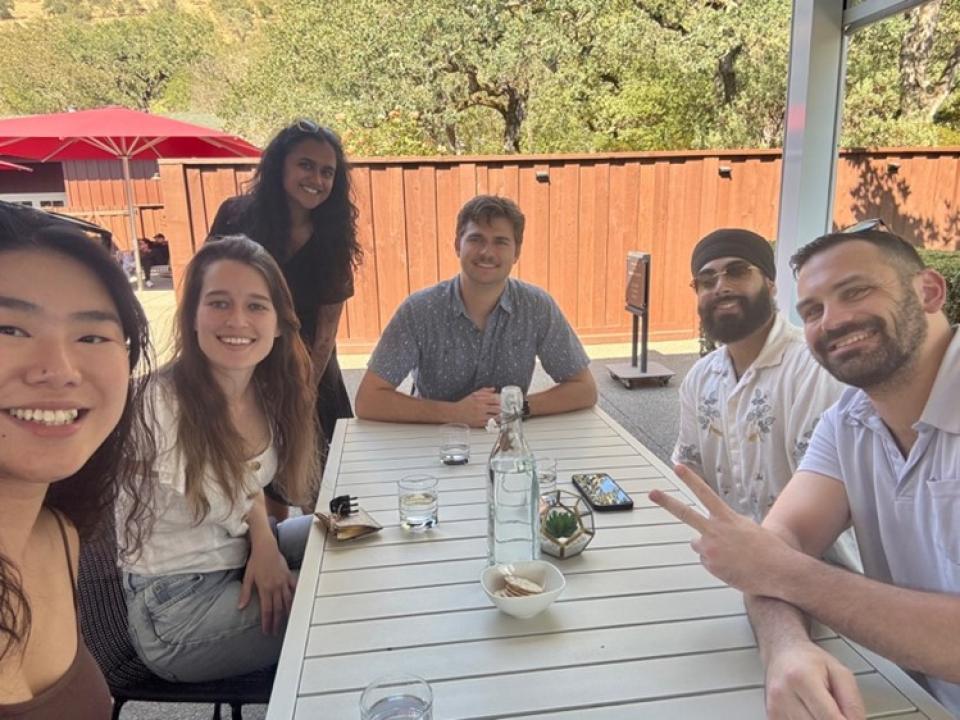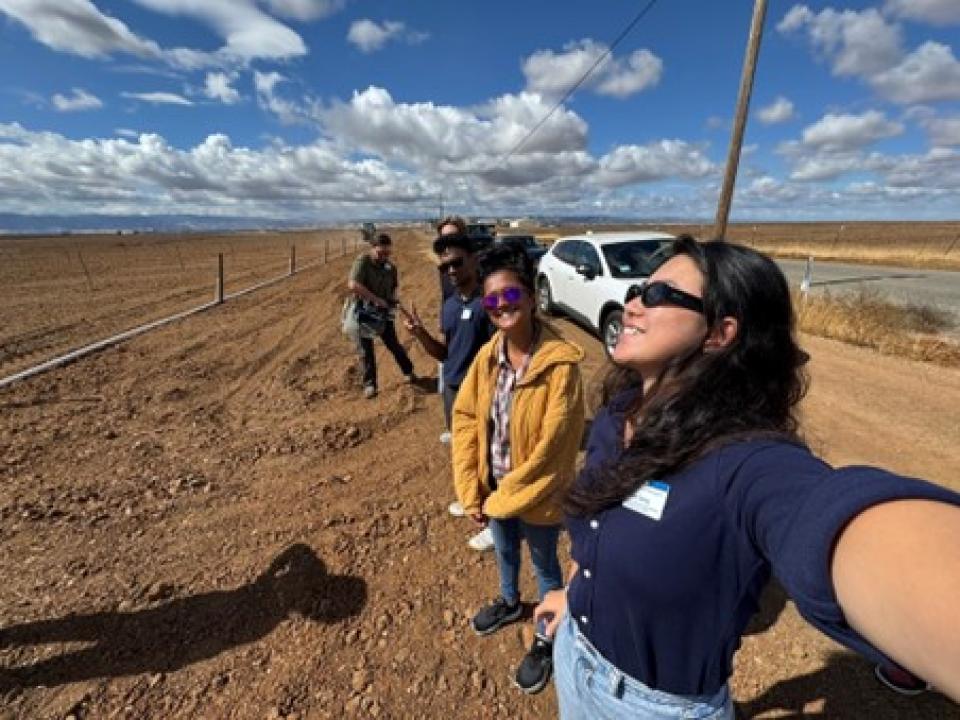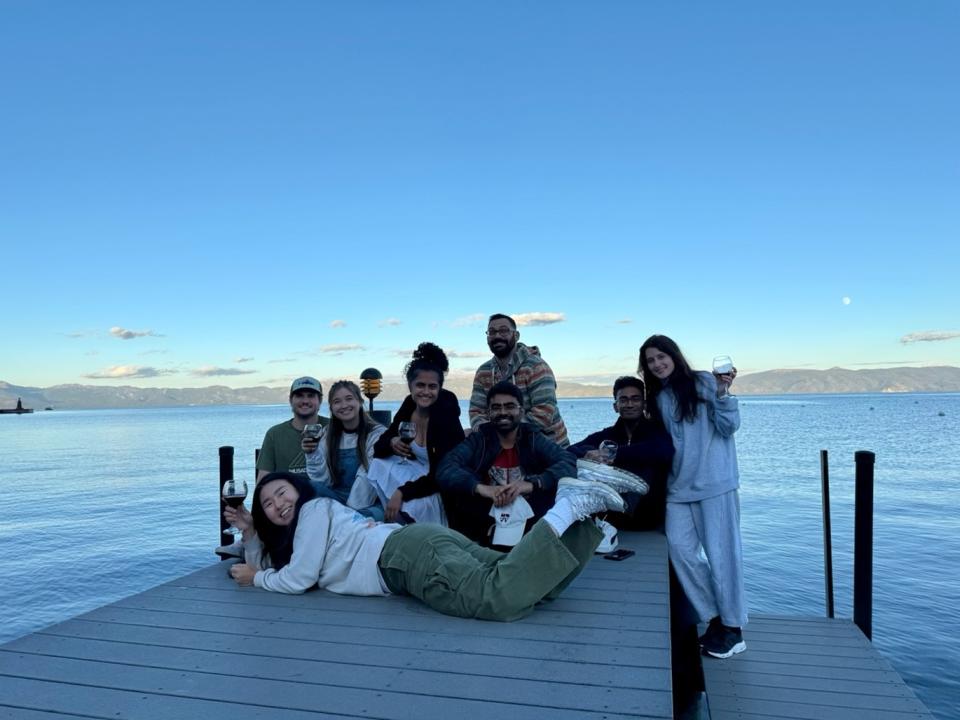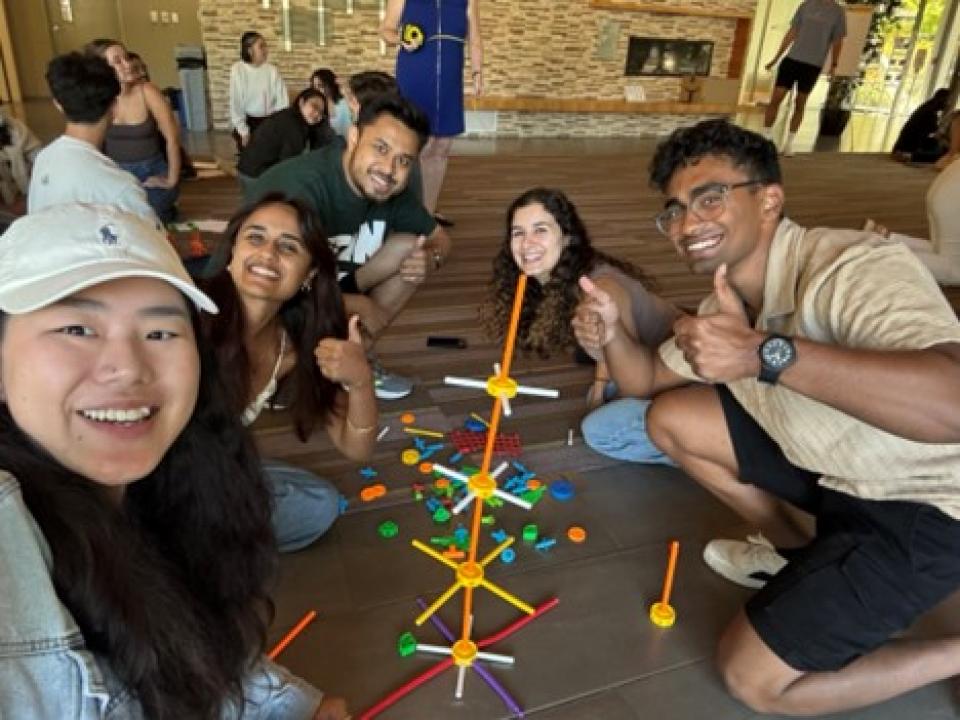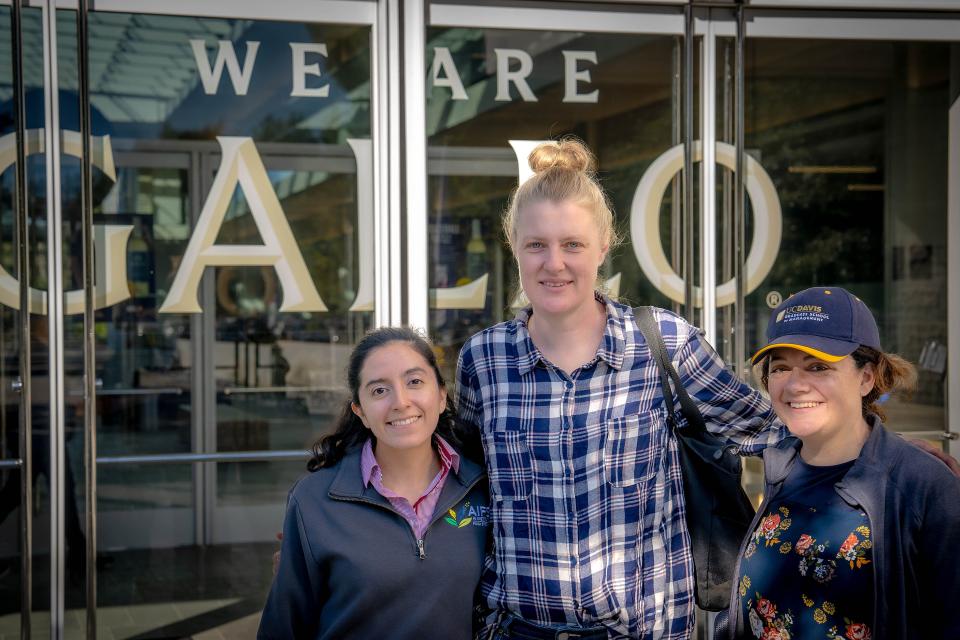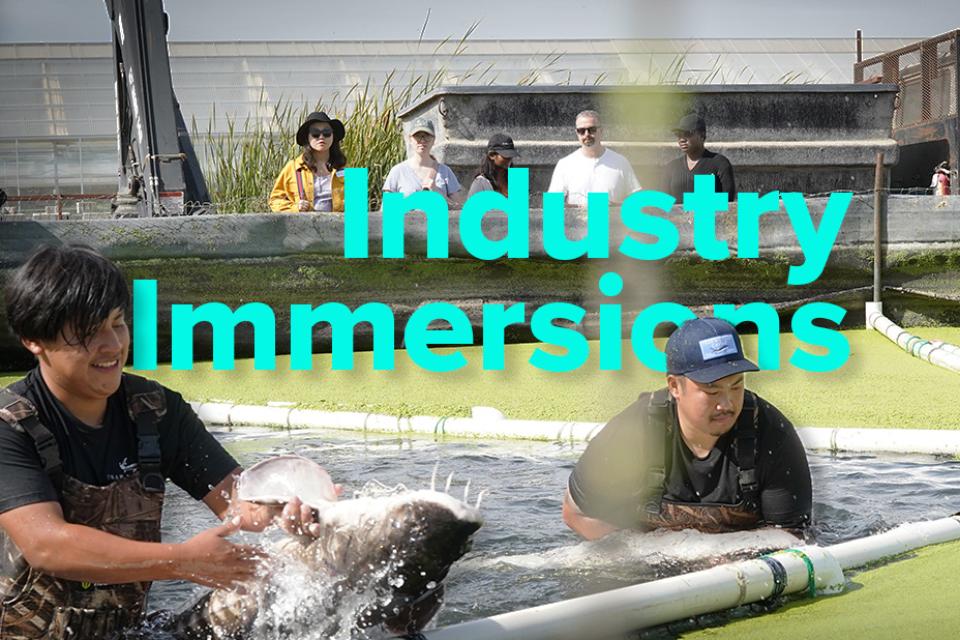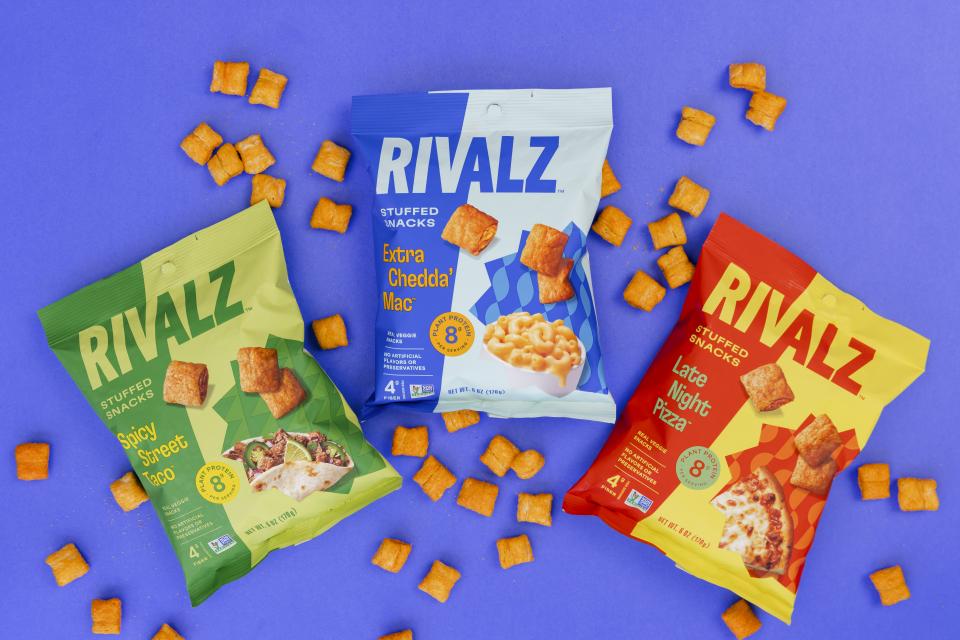What is the UC Davis Food and Ag Industry Immersion?
“You don’t just hear about industry leaders, you connect with them.”
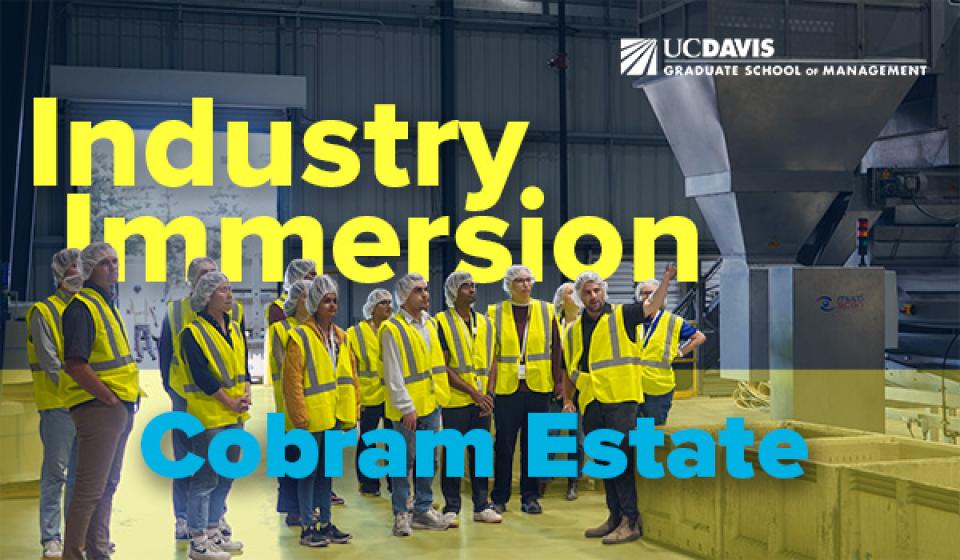
“What are your classes like? What’s UC Davis like?”
That’s the first thing my friends in New York asked when I visited recently. Explaining it to my city people who live in a concrete jungle was challenging.
How do you describe a business school program where your classroom sometimes smells of freshly tilled soil, and your lessons involve tasting warm, freshly harvested almonds?
The past two months at the UC Davis Graduate School of Management (GSM) have been nothing short of transformative, especially through the interdisciplinary Food and Agriculture Industry Immersion, where I am learning first-hand how business, science and innovation come together when it comes to how we feed our growing planet. If the food business isn't your cup of tea, the GSM offers two other Industry Immersions that draw on UC Davis' global leadership: Biotechnology and Sustainable Energy.
After five years working full-time in marketing and media, returning to the classroom feels more intentional, more connected to purpose.
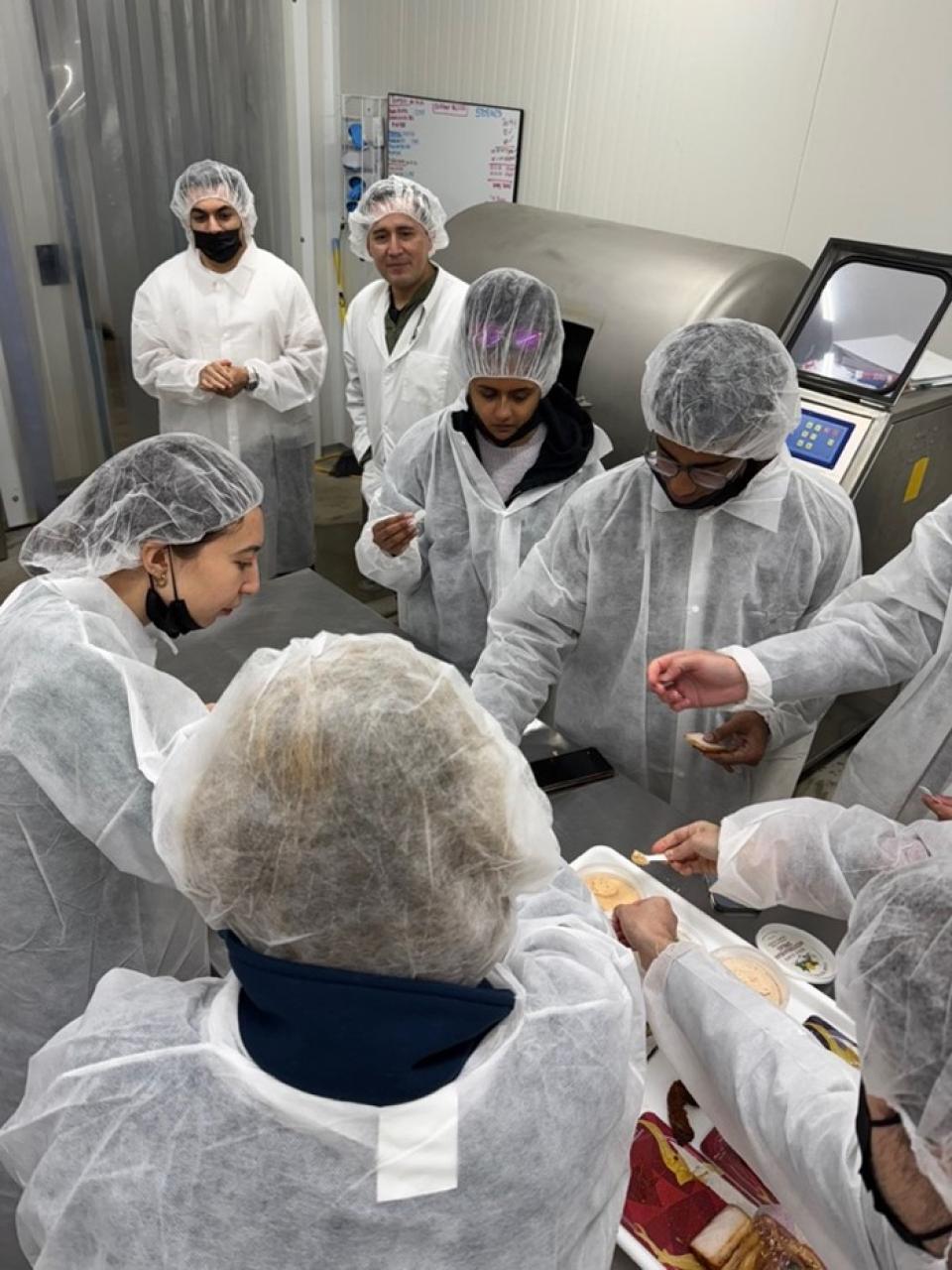
Connecting with Where Our Food Comes From
One of the most valuable experiences so far has been Julie Morris’ Food and Ag Pre-Immersion course.
Over four weeks, we’ve taken exclusive tours of food and ag businesses in the Sacramento Valley and Salinas Valley, from family-run almond and caviar farms to a cutting-edge sweet-protein startup that just closed its Series B round.
During the visits, we spoke with farmers, walked through their orchards and learned how harvesting cycles are reimagined for climate-smart production.
Who knew that freshly harvested almonds explode with the aroma of pure almond extract?
We stood among the newly prepared olive ranch, feeling the soil and seeing how irrigation systems bring production numbers into something tangible.
It’s one thing to read about supply chains and production scaling; it’s another to witness them unfold, acre by acre, in the field.
Community as the Best Resource
At UC Davis, I am learning through my community.
The faculty here at UC Davis are true connectors—opening doors to industry events, research opportunities and the leaders shaping the future of food and agriculture.
My classmates have also become part of my learning ecosystem. Some come from aquaculture, others from viticulture or coffee production.
My background is in food media and the culinary arts. Every hallway conversation and coffee chat deepens my understanding of the challenges within today’s food system and reveals new angles on what the business of food could become.
And then there’s the campus itself—a university built on research and collaboration. On any given week, you might find me at a Seed Central strawberry breeding program, a Mondavi lecture on the wine industry or an AI for Food Science symposium. The campus truly makes it easy to stumble into the next opportunity if you’re curious enough to look.
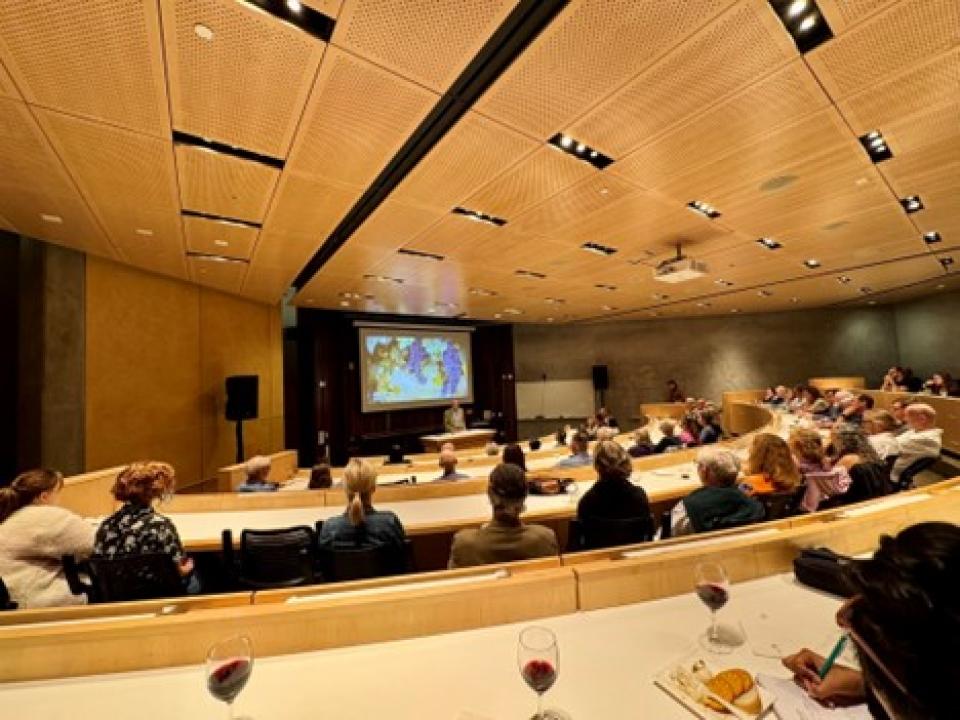
Turning Connections into Career Growth
One of the biggest advantages of studying food and ag business at UC Davis is access. You don’t just hear about industry leaders, you connect with them.
Through our immersion trips, I’ve spoken directly with executives from Cobram Estate Olive Oil (watch video), Tsar Nicoulai Caviar and other companies shaping California’s food landscape. These visits offered something truly rare: candid, unfiltered conversations with people driving innovation in real time.
Two weeks into the program, I volunteered with UC Davis’ Innovation Institute for Food and Health, helping plan its angel investor gathering where I connected with founders, investors and scientists advancing the future of food innovation.
This month, I’m collaborating with UC Davis Food Science and Technology to host a food film screening on campus, blending my passion for storytelling with my growing focus on food and ag business. It feels like a full-circle moment where creativity, community and business align into a purpose-driven path forward.
A Community That Champions Your Growth
The most inspiring part of UC Davis is how open and collaborative everyone is. Faculty, classmates and alumni genuinely want to see you thrive. The doors that open for you in the food and ag industry—whether to founders, VCs or researchers—are ones you might not find anywhere else. With the Davis name, people don’t just welcome you in—they invite you to the table.
When my friends in New York hear about everything I’ve been learning and building, they laugh and say, “Wow, your MBA sounds delicious.”
Here at UC Davis, every conversation, every tasting and every field trip is part of the lesson and will lead you to your next big step as a future food leader.
Sarah's Student Life Snapshots
(Click on each photo to learn more about UC Davis MBA student life.)




